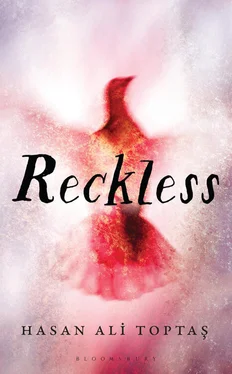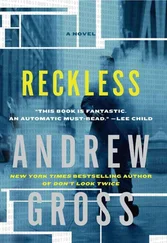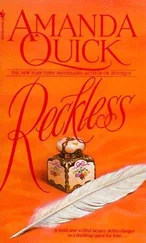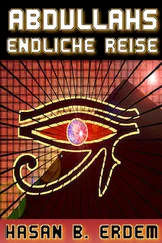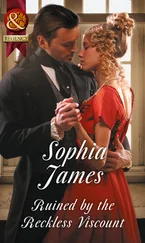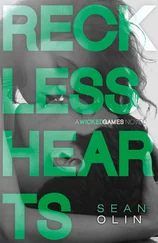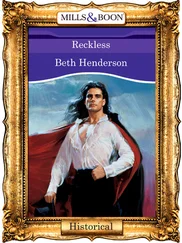‘I know,’ Ziya said.
‘When I was a child,’ said Kenan, leaving no time for Ziya to say any more, ‘there was a bath next to this fountain we’ll be coming to. Whitewashed walls on three sides, and open to the sky. They’d put these great blackened cauldrons into the oven and the water they boiled in them was laced with ash, and that’s what people bathed in, that’s what people used to wash their clothes. And the women beating their laundry with sticks, they’d grit their teeth, but you could still hear that strange sound they always made. Hink. Hink. Hink. And whenever they made that sound, there’d be these drops of water flying off their sticks, and as they flew through the air, each one drew its own sparkling semicircle. And with all that water flying around, the women’s fronts would get wet, too, and then, of course, you’d have all those wet breasts swinging, right in front of all those boys who were fast turning into men. And every time those breasts swung, those hungry eyes swung with them. And then, when all the laundry was spread out on the hedges and the undergrowth, it would be the children’s turn, and because bath time scared them, they would always kick up a fuss, or scatter like little goats or throw a tantrum, but whatever they tried, in the end it wouldn’t be enough, because their mothers would take them by the arms, strip them down, and pop them into the cauldron. And then they’d go to work on them, saying, what’s all this nonsense, you infidel spawn? And with each word, they would soften those children up. And then they’d beat the dirt out of them, with those sticks of theirs, and those bars of soap. They’d beat those little heads and backs till all the dirt was gone. And the sooty water would make those children’s faces shine like mirrors. And the very moment their mothers let go of them, they were off, chasing after the sparrows flying up out of the dung heaps, or racing after a pedlar, if a pedlar happened to be passing through, and making an enormous ruckus. But it wasn’t just pedlars with their donkeys and their big straw baskets; there were also the dyers, some days, with the yarn they’d taken from all those spinning wheels and looms and dyed white, or green, or purple, or yellow, and the tinsmiths, lugging their sacks of pots and pans from door to door, and the circumcisers that gave the children such nightmares, and the leech sellers, with their hissing bottles. The village would always somehow know when these pedlars were coming, and when they didn’t, people would invent a sad story to explain it, in all innocence, of course, and then, for months, they would tell that story left, right and centre, as if it were really true. And then, at shearing time, the sheep and the goats in the pens behind some of those houses would lie down in the shadows cast by those stories, and the whirr of the shears would seep into those stories, stroke by stroke, like little scraps of yarn. And maybe something seeped out of them into those mountains over there, just behind the village. Because in those days, many of the villagers would still pack up all their belongings and take their horses and donkeys and move up to the meadows for the summer; they’d leave behind the oaks and junipers you and I saw yesterday, and on they’d go, up those thyme-scented slopes, on and on they’d go, under the swooping shadows of hawks and eagles, on and on, through the forest of the red pines, until they reached the clearing where, every summer, they set up their black tents. And the shepherds and the goatherds would take their flocks into the surrounding meadows, and how strange they looked, too, circling around and around, with those shining muskets slung from their shoulders. Floating through the rustlings of the forest you could hear bells ringing, bells the size of fists; and the milk vats, ringing with their echoes. As for the rest of us — we did the milking, we made yoghurt and we made cream, we tied cheese up into sacks, but it was almost as if all that was an excuse, almost as if what we were really doing was giving our souls some air, to spend a few months with the wind and the stars and nature’s bounty. And that was why there were times when we were at one, utterly at one, with the flowers of the meadow, when even the birds seemed to chirp inside us, when the wolves and the jackals no longer called out to us from the depths of the darkness that swallowed up the pines, but from the depths of our own souls. And it would be with lighter hearts that we men and women, young and old, would walk single file down the mountain at the summer’s end. And the flocks would tumble slowly down the same slopes in a cloud of bleats and dust, and soon they would be back in their old pens, and the shepherds would go back to taking them out every morning and returning them at dusk. In those days, the village didn’t just have goats and sheep — we also had lots of cattle. They took up a lot of room in those pens, with their big eyes and their heavy breathing. And every morning they’d be taken out and given to a cowherd, but at the end of the day their owners wouldn’t come out again to pick them up. That’s because the cows could find their own way back to their owners. And the amazing thing is, not a single one ever put a foot wrong, not even once. By the time I finished primary school, people had stopped going up to the meadows, sadly. Our herds had shrunk in size by then — no one had more than a few sheep or goats, and some people converted the pens at the edge of their land into houses for the young ones, and instead of the old earthen roofs, more and more people started using tiles. In spite of all these changes, there was still a pile of manure in a corner of each courtyard, and leather patches for cracked wooden vats, and oxcarts, and candles, and threshing sledges, and prods, and spinning wheels, and chicken coops that always had foxes stalking them, and the spiced tarhana soup they ate for breakfast every day. And by now a lot of people had bought transistor radios, and so floating their way amongst all this we could hear Müzeyyen Senar, and Nuri Sesigüzel, and Ahmet Sezgin, and Nezahat Bayram, sending out their little clouds of heart-wrenching sorrow. I used to say they looked like decaying saddles these radios, I remember. They used to pack them so carefully in cotton-print sacks and take them with them to their fields and gardens. And then they’re holding it next to their ears, saying: Oh, I hope it’s not a bad winter, and then they’re out there with the oxen and the donkeys, and braying just as loud. Sometimes it was because a neighbour wanted his share, and sometimes it was to make a division. Look, we’ve come to the end of the road.’
They were standing in front of the fountain.
Ziya looked in silence at the water rushing from the groove, and the mossy concrete trough, and the willows bordering the fountain.
‘You can drink this water, can’t you?’ he asked.
‘Of course you can,’ said Kenan. ‘And it doesn’t taste at all bad, by the way. Look, do you see those crumbling walls back there? Those are the remains of the bath house I was telling you about.’
‘But listen,’ said Ziya. ‘I’ve been wanting to ask you what that good thing was your mother mentioned just a while ago, but you haven’t given me a chance to ask.’
‘I know,’ Kenan replied as they walked towards the shade beneath the willows. ‘I could tell.’
‘What could you tell?’
‘That you were going to ask that question.’
They stood on the grass in the shade of the willows, face to face.
‘So that explains it,’ said Ziya. ‘That’s why you used those plastic vats as an excuse to go back to the past, to talk about whatever came into your head.’
Kenan said nothing.
‘All right, then,’ said Ziya. ‘So tell me. What was this good deed I did for you in the army?’
Читать дальше
